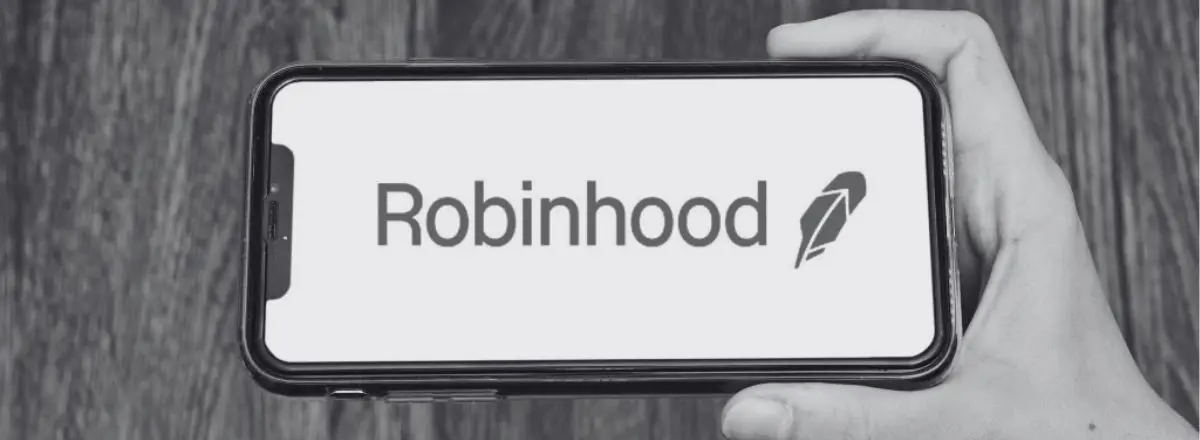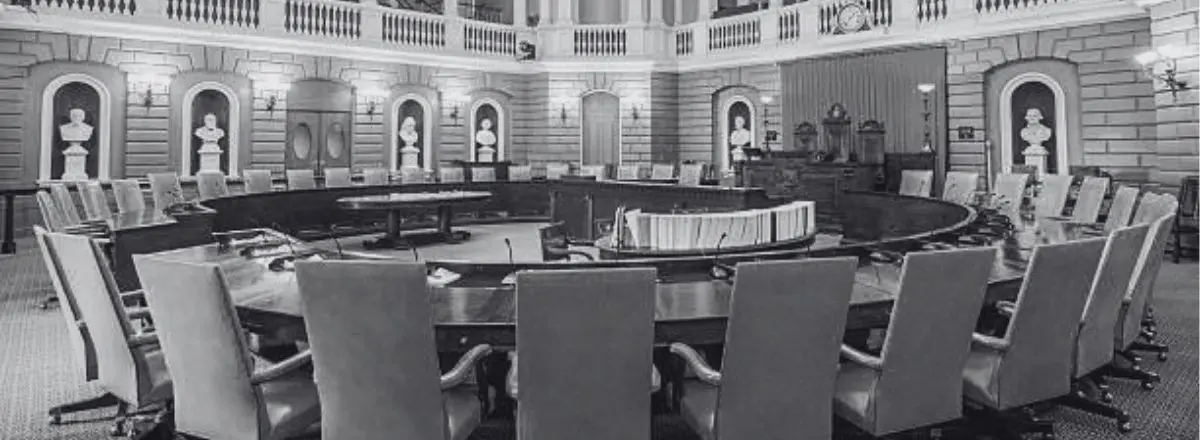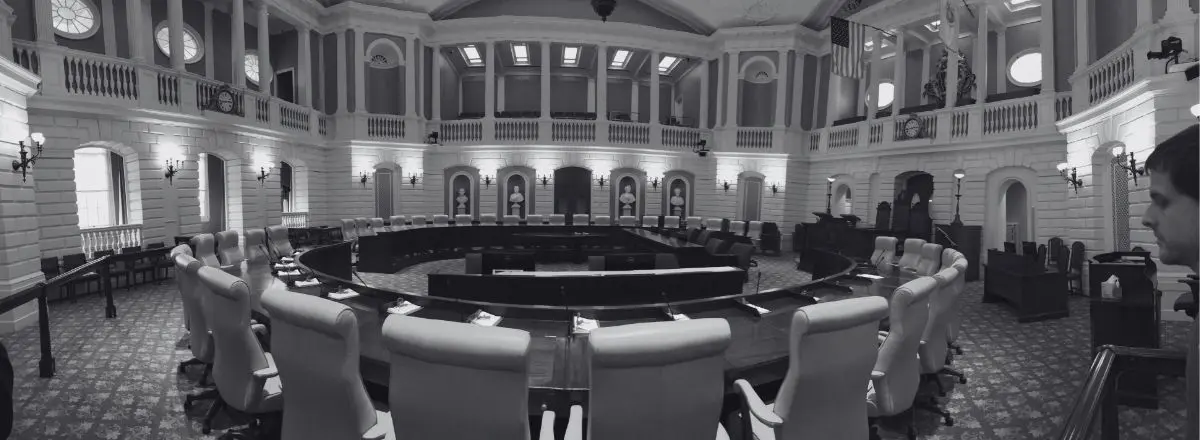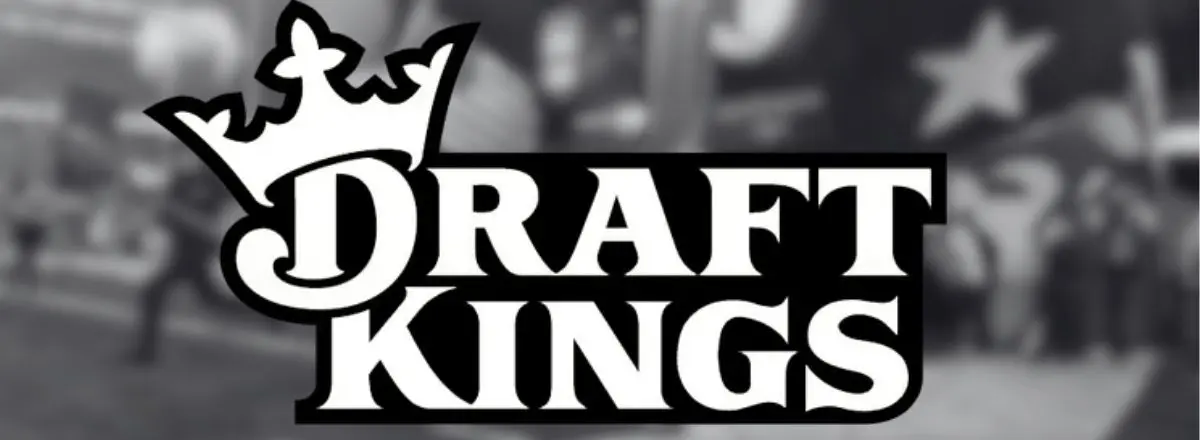Prediction markets are all the rage right now. And Massachusetts sports betting regulators are attempting to stop it.
Robinhood isn’t having it, though. The company has filed a lawsuit that seeks to have a judge block another lawsuit filed against one of their affiliates, Kalshi, which is among the companies offering event-based contracts on sporting events.
Attorney General Campbell filed the initial suit that has prompted this response from Robinhood. The motion argues that Kalshi’s prediction markets amount to unlicensed sports betting in Massachusetts, and that they should be barred from operating in the state. Robinhood and Kalshi, on the other hand, maintain there is a distinction between their service and typical online sports betting in the United States.
The Bay State’s attempt to extricate event-based contracts is hardly surprising. These transactions have rattled licensed sportsbook operators in the United States. Massachusetts is also among the markets that is most proactively regulated. Their response here is similar to the stance on daily fantasy sports sites. In tandem with other states, Massachusetts’ action against such transactions helped companies like Underdog Fantasy and PrizePicks reinvent their entire business model.
This suggests that the outcome will be the same here. And yet, as you are about to find out, it’s not actually that simple.
Robinhood Believes Kalshi is NOT Offering Massachusetts Sports Betting Services
Here is Sean P. Murphy of The Boston Globe with more on Robinhood’s lawsuit:
“The attorney general’s suit accuses Kalshi of operating online sports betting without a license from the state Gaming Commission. In its suit, Robinhood says it is dependent on Kalshi: ‘While Robinhood facilitates the placement and liquidation of event contracts for its customers, the contracts themselves trade on Kalshi. Robinhood therefore had no choice but to file this lawsuit to protect its customers and its business,’ the Robinhood suit says. Otherwise, ‘Massachusetts customers would face abruptly losing access to sports-related event contract trading through their Robinhood account,’ the suit says.”
This is an interesting way to frame the suit. “Apbruptly” shutting down Kalshi’s event-based sports contracts seems to be the attorney general’s entire endgame. Using that as the justification for why the first lawsuit shouldn’t proceed feels counterintuitive.
However, this also seems like an attempt to further distinguish event-based contracts from Massachusetts sports betting. By treating the business as if there is no regulatory overlap, it lends credence to Kalshi continuing to operate in the market.
There’s a Good Chance Robinhood will be Successful
To many, there is no discernible difference between the event-based sports contracts that Kalshi processes and Massachusetts sports betting. Both transactions allow customers to stake money on something—a win, a stat line, a championship, etc.—going down. That sure sounds like sports betting on its face.
Robinhood and Kalshi, on the other hand, do not see it the same way. They instead believe the contracts they offer fall under the “trades” umbrella. And this means they should be federally regulated rather than subject to state approval.
Licensed sportsbooks in the United States aren’t buying it. More critically, state regulators seem outright against it. The Massachusetts Gaming Commission is not the first to target prediction markets. If their lawsuit is successful, though, it will be the first. As ESPN’s David Purdum and Shwetha Surendran write:
Gambling regulators, mindful of their tax revenue, say both instances are sports betting, a business that requires a license from the state to operate…Kalshi has so far deflected legal challenges. Seven states have sent cease-and-desist letters to the company in recent months, alleging that its activities violate state law. In response, Kalshi has taken three state regulators to court, arguing that the company does not fall under their jurisdiction because it is a financial exchange, not a sportsbook. Judges ruled in favor of Kalshi in Nevada and New Jersey, allowing the company to continue offering sports contracts in two of the largest legal betting markets in the nation while the lawsuits are ongoing.”
It is important to note that the aforementioned ruling does not completely legitimize prediction markets. It simply means Kalshi can continue offering event contracts while lawsuits in Nevada and New Jersey unfold.
With that said, the previous rulings do imply that Massachusetts sports betting regulators will not be able to shut down Kalshi until the lawsuit gets resolved.
A Lot is at Stake with Massachusetts’ Prediction-Market Lawsuit
There is no downplaying the potential repercussions of this latest Massachusetts sports betting legal battle. The outcome will set a precedent, whether it is one way or the other.
If the courts rule in favor of Kalshi, it sets the stage for lawsuits in other states to fold. On top of that, it would also send prediction-market operators barreling toward other markets. Look no further than pick’em fantasy games rolling out in Texas and other markets that haven’t legalized sports betting. Those services exist in a gray legal area. But they are prevalent enough that FanDuel, via FanDuel Picks, has launched its service across 17 different states without legal sports betting.
On the flip side, if Kalshi flames out of Massachusetts, the floodgates for regulators will open. More action will be taken against these event-based contracts. It will likely be similar to the influx of markets that took aim at daily fantasy sites over the past two years.
In this scenario, the precedent will be set. This is to say, if Massachusetts sports betting regulators are able to shudder prediction markets, every other state may follow suit.
Take a look at this list of the top online sportsbooks so you can find one that works for all of your sports betting needs:
-
EXCLUSIVE BONUS
 50% bonus up to $250Play Now
50% bonus up to $250Play NowT&C apply, 18+, Play responsibly
-
EXCLUSIVE BONUS
 125% up to $1,250Play Now
125% up to $1,250Play NowT&C apply, 18+, Play responsibly
-
EXCLUSIVE BONUS
 225% up to $3,625Play Now
225% up to $3,625Play NowT&C apply, 18+, Play responsibly
-
 50% bonus up to $250Play Now
50% bonus up to $250Play NowT&C apply, 18+, Play responsibly
-
 125% up to $2,500Play Now
125% up to $2,500Play NowT&C apply, 18+, Play responsibly












